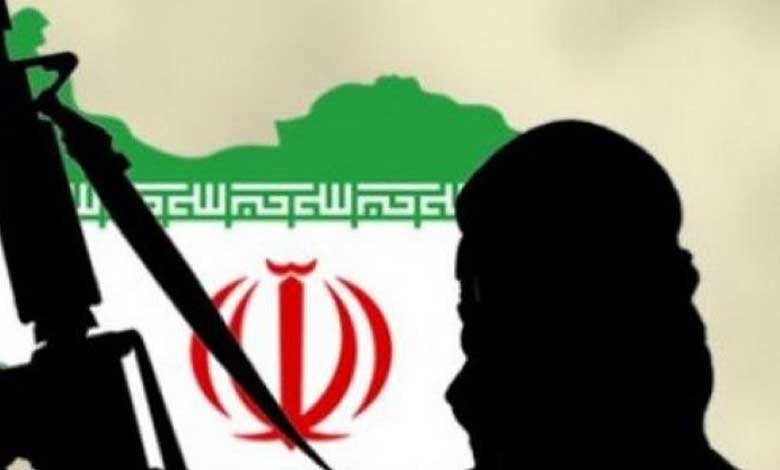Was Qatar involved in supporting Iranian terrorism in the Middle East?

International controversy has intensified recently after US media revealed last week that investigations have been launched inside the American State Department about Qatar’s involvement in financing the Iranian Revolutionary Guard, which is classified primarily as a terrorist organization in the United States and a number of Western countries. This has cast a shadow over the US-Qatari relations, which, according to US officials, had enjoyed a strategic partnership earlier.
Amid successive reports and leaks on the issue, the US military issued a statement confirming the withdrawal of equipment and weapons from Qatar and its anchorage in Jordan, saying: The US closed bases in Qatar that once stored weapons-filled depots, and the remaining supplies were transferred to Jordan, as the US closed the main As Sayliyah camp, the southern Camp As Sayliyah, and a Falcon ammunition depot.
Was Qatar involved in supporting Iranian terrorism?
After many years of covert cooperation between Tehran and Doha, Qatari-Iranian relations reportedly began to come into the open following the boycott by the Arab Quartet countries of Saudi Arabia, the United Arab Emirates, Egypt and Bahrain, which witnessed a huge leap in political, commercial and security relations between the two countries in mid-2017; because the two countries share a border.
Doha and Tehran’s military cooperation, such as joint exercises in the region, surfaced in 2019. The commander of the Iranian Revolutionary Guard Navy, Admiral Alireza Tangsiri, announced that the Islamic Republic had invited Qatar to conduct joint exercises in the region, and the Iranian Mehr Agency revealed the extent to which the two countries were cooperating militarily.
A delegation from the Iranian Revolutionary Guard Navy, headed by the Deputy Commander of the Revolutionary Guard Navy, Brigadier General Ali Reza Tanksiri, participated in the Middle East Naval Commanders Conference in Doha on Dec. 2018, which revealed the readiness of the two countries to intensify cooperation at that time.
Former Iranian President Mahmoud Ahmadinejad had triggered a resounding surprise when it was revealed that the former Emir of Qatar, Hamad bin Khalifa Al Thani, had paid $57 million to release 57 men in the Revolutionary Guards who were captured by an armed group in Syria when they were on their way to the Sayeda Zainab Shrine in southern Damascus. The bus driver, however, purposely led them to an ambush by an armed opposition group (he did not specify), and captured all the Guards.
At the time, the former Emir of Qatar mediated with armed groups for Iran. Ahmadinejad referred to Iran and the Syrian government as unsuccessful in releasing Revolutionary Guard captives, which created great concern in Iranian officials for fear of beheading them and posting videos of them; So Qatar was used to mediate so that after a while Qatar could mediate their release.
The incident not only reveals the secret relations between Iran and Qatar, but also the links between Doha and the Sunni terrorist groups in Syria and Iraq. Ahmadinejad says he received a call from the then former Emir of Qatar, who told him: I found a way to contact the hostage-takers, and they said we wanted a million dollars to release everyone, 57 million dollars, a lot of money.
When the Iranian President sent a check for $57 million with his Foreign Minister to Qatar, he was surprised that the Emir of Qatar immediately returned the check to them, and has since addressed Iran’s delegation, saying: I did it for my brothers, without charge, to convey my greetings to Nejad, and tell him I did it for the friendship of the two peoples and my brothers.
Political analysts and security specialists confirm that Qatar has worked to fund political Islam groups in the Middle East, whether Sunni or Shia groups, including Hezbollah, the Houthis in Yemen, Hamas in Gaza, the Muslim Brotherhood, and terrorist groups in Syria, Iraq, and Libya. Recent events and the confirmation of its funding of the Revolutionary Guard will prompt the United States to undermine Doha itself because of supporting Iranian terrorism that targets American interests.
Qatar has also been linked to the public funding of groups linked to Iran, including Hamas in Gaza, Hezbollah in Lebanon and the Houthis in Yemen, which are moving according to a purely Iranian agenda and in a public manner. This also pushes the seriousness of investigations within American institutions about the Qatari regime and its support for terrorism, especially Iran’s terrorism.












